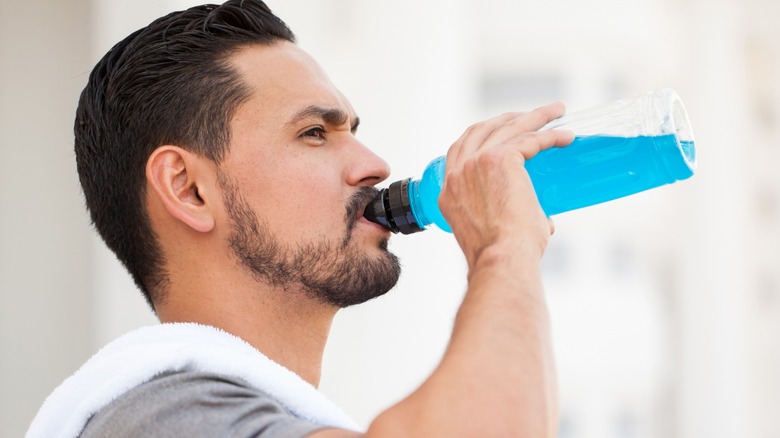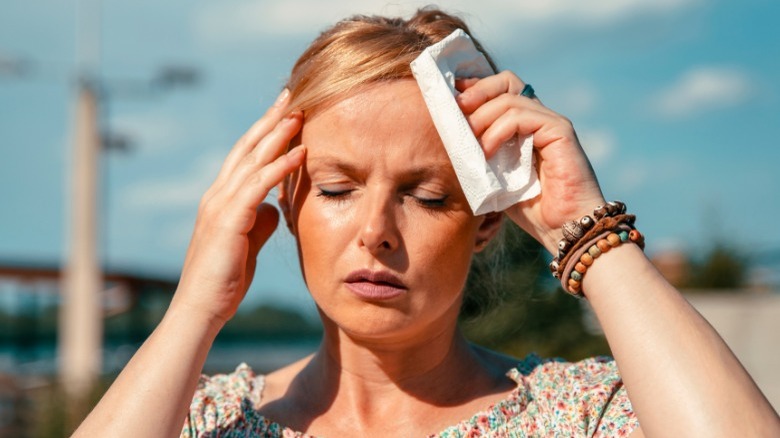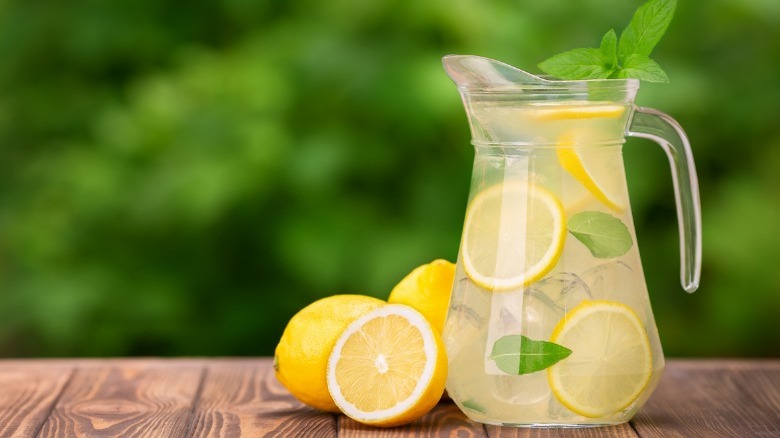
After a vigorous run, you might find yourself craving something more flavorful than water to rehydrate and boost your energy. Perhaps your taste buds long for a burst of berry blast or fruit punch to fight off dehydration while also recharging.
You’re not alone in your enjoyment of Powerade or similar sports drinks. The global market for sports drinks is expanding to accommodate increasing demand, as noted in a market analysis from Grand View Research. Approximately 60% of males and 40% of females are estimated to consume sports drinks. The market share for isotonic drinks like Powerade—which have concentrations of salts and sugars similar to the human body—is projected to reach $11.9 billion by 2025.
Despite the popularity of drinks like Powerade, do they really serve as a good alternative to water when you’re dehydrated? According to emergency physician Steve Shelton, MD, from Prisma Health, there are numerous ways to hydrate beyond water—but not all are beneficial. He mentions that beverages with caffeine or alcohol offer minimal hydration benefits. The same goes for sugary drinks, including Powerade. Although Dr. Shelton acknowledges that Powerade is low in sugar, diluting it can make it healthier. Nevertheless, he endorses water as the superior choice for hydration. While Powerade does provide the electrolytes necessary for maintaining various bodily functions, Dr. Shelton suggests that a balanced diet can also supply these electrolytes.
What happens when you get dehydrated?

The University of Florida is to thank for the invention of sports drinks. Gatorade, the original sports drink, was developed in 1965 after assistant coach Dewayne Douglas asked a team of scientists to create a beverage that would replenish essential fluids lost by his players due to heat and physical activity, as reported by History.
Although your body consistently loses water through processes like sweating and urination, dehydration occurs when you lose more water than you replenish through fluids and specific foods, according to Cedars Sinai. This results in a loss of vital electrolytes such as sodium, potassium, magnesium, and calcium. Powerade contains all four minerals, and since it is enjoyable for many, proponents argue that it can replenish these minerals faster than water, particularly during high-endurance activities.
Thirst is the most recognized symptom of dehydration. Other symptoms may include dizziness, muscle cramps, headaches, confusion, and an increased heart rate, among others. To assess dehydration, a doctor might check your blood pressure and heart rate and possibly conduct blood and urine tests, depending on your symptoms’ nature and severity. Treatment varies based on age, health, and symptoms, ranging from drinking fluids like water, sports drinks, or fruit juices for mild dehydration to possibly receiving intravenous fluids for more severe cases, according to Cedars-Sinai.
Here are alternative ways to stay hydrated

Hydration is crucial, but not everyone enjoys drinking water—or overly sweet sports drinks. Fortunately, there are plenty of other options available.
Consider a bowl of oatmeal, as suggested by MedExpress. Oatmeal is both filling and hydrating because the oats absorb water or milk during cooking. Milk itself is also an excellent hydrating option. You can also enjoy a refreshing smoothie made with strawberries, peaches, spinach, cucumbers, and blueberries. For vegetable lovers, salads are a hydrating choice, particularly lettuce, which is about 94% water. A chilled gazpacho is a perfect hydrating meal on a hot day. For dessert, try a homemade frozen fruit popsicle. Combine watermelon and other fruits in a popsicle mold, freeze, and enjoy a sweet, hydrating treat in an hour.
However, water remains the most reliable option for hydration. To make it more interesting, The Baton Rouge Clinic recommends adding slices of fresh lemon, lime, or orange for a citrus flavor. Alternatively, create fruit-infused water with fresh berries, oranges, and mint. Slice the fruit, place it in a mason jar, fill with water, and refrigerate for two hours or overnight for a flavorful experience.




